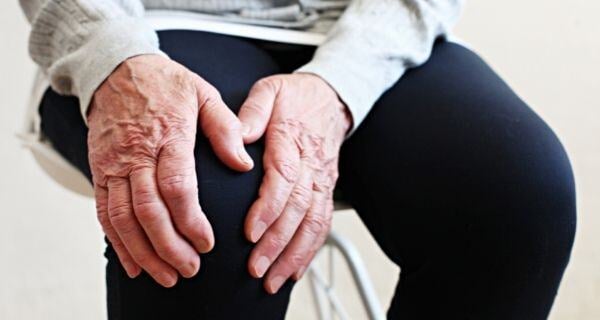While people may experience knee pain at any age, in older adults, it is typically caused by changes in the body due to aging. Those changes may include weakening of the bones, decreased muscle strength, inflammation from arthritis, and other conditions.
Fortunately, there are a number of ways you can prevent knee pain or manage your existing knee pain. This blog will also review some of the causes and what factors may increase your risk for knee pain.
What Causes Knee Pain?
According to the National Institute on Aging, osteoarthritis is the most common form of arthritis among older adults and a frequent cause of debilitating knee pain. It occurs when the cartilage breaks down and wears away causing your bones to rub against each other.
Osteoarthritis frequently affects your knees, but it can also cause issues with the hands, neck, hips, feet, and lower back. When suffering from osteoarthritis in your knees, you might experience pain, stiffness, and swelling, making mobility difficult.
A variety of injuries can also cause knee pain. Examples of knee injuries include fractures, a torn meniscus, tendinitis, and anterior cruciate ligament (ACL) injuries.
Mechanical issues are another cause of knee pain. A mechanical issue might include a dislocated knee cap, hip or foot pain, or iliotibial band syndrome. This syndrome occurs when the band of tissue that runs from the outside of your hip to your knee becomes tight and rubs against the thighbone.

What Factors Can Increase My Risk for Knee Pain?
It’s important to be mindful of factors that can increase your risk of experiencing knee pain. Often, there are actions you can take to help prevent future issues.
Here are a few risk factors to keep in mind:
- Excess weight
- Sports or repetitive activities that cause stress and pressure on your knees
- Previous knee injury or surgery
- Weak muscles, or lack of strength and flexibility

How Can I Help Prevent or Manage Knee Pain?
There are many ways you can help prevent and manage knee pain. It’s important to talk to your doctor to determine the best method for you.
Here are some tips to consider:
1. Physical Therapy
If you’re already experiencing knee pain, talk with your doctor about participating in physical therapy. A physical therapist will prescribe a customized regimen that may improve your knee’s strength and range of motion, increase function, decrease pain, and improve overall quality of life.
Your physical therapist may apply ice and heat, use stimulation methods, or apply ultrasound techniques that can increase blood flow. You’ll often receive an exercise plan upon discharge to continue with the same activities at home.
Related: The Benefits of Physical Therapy for Seniors >>
2. Knee Conditioning Exercises
The American Academy of Orthopaedic Surgeons offers knee conditioning exercises designed to strengthen the muscles that support the knees, reduce stress on the knee joints, and help relieve pain.
However, the group notes that such exercises should be done after consultation with your primary care provider to ensure they are appropriate for your particular circumstances.
Related: Helpful Tips to Relieve Arthritis Pain Naturally >>
3. Weight Loss
The Arthritis Foundation cites recent studies showing that losing weight reduces pressure on the knees and eases pain and inflammation.
A healthy diet combined with exercise can help you lose weight and strengthen your muscles, both of which can help to reduce knee pain.
4. Pain Medication
Medication, including over-the-counter pain relievers and topical creams with numbing agents, may help control your knee pain. Your doctor might also recommend an injection of either steroids or cortisone.
5. Knee Surgery
Surgery – either arthroscopic surgery or knee replacement – might be an option. A surgeon will look at several factors before recommending whether surgery is appropriate and, if so, which type it should be.
It’s important to talk to your doctor when experiencing knee pain. If left untreated, knee pain could worsen over time. But with the correct diagnosis and treatment plan, you can enjoy a positive outcome and better quality of life.
Discover Additional Health & Wellness Resources
The Bristal’s blog features several articles on health & wellness topics. You can learn tips on caring for your eyes as you age, relieving arthritis pain naturally, and trying the MIND diet for better cognitive health.



